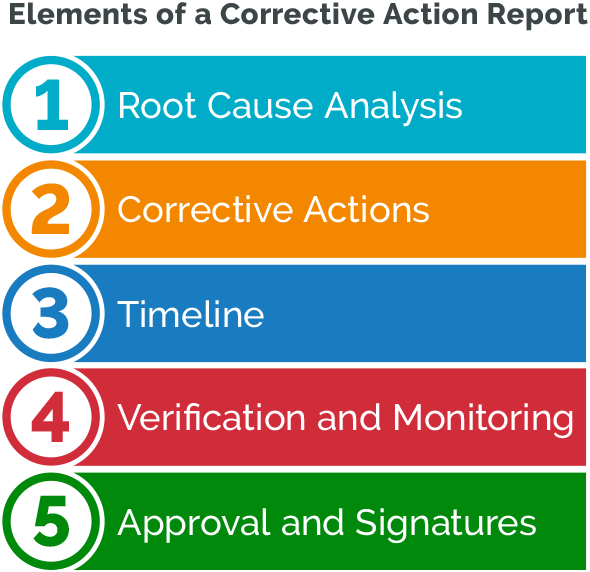A Corrective Action Report (CAR) serves as a formal document that identifies issues, addresses them, and ensures their prevention in the product creation and manufacturing processes. Finding the problem’s root cause, fixing it, and making sure it doesn’t happen again are the main goals of a CAR.
CARs in production are very important for maintaining product quality and running the business efficiently. When production encounters problems, a CAR outlines the actions taken to identify the root cause, including checks, tests, and investigations, followed by the steps taken to rectify the issue, such as modifying the process or the tools used. This ensures that customers don’t receive faulty goods and that similar problems do not occur again in future production runs.
CARs assist in resolving design, material, or testing issues that arise during the product’s development stage. Once we identify problems, we suggest steps to address them, such as altering designs or improving materials. This way, future versions of the product will meet performance and safety standards.
Overall, CARs are a methodical way to make things better every time. They encourage responsibility, quality control, and following the rules in both the manufacturing and product development sectors.

Read our blog to learn the key requirements for complying with EU MDR requirements and how Cloud QMS can help manufacturers any post compliance hurdles.
The European Database for Medical Devices (EUDAMED) facilitates the safety, quality, and regulatory compliance of medical devices throughout Europe. The European Medical Device Regulation (MDR) established EUDAMED as a centralized repository to monitor the lifetime of medical devices, including events, non-conformities, and corrective measures. Corrective action reports (CARs) are essential for reporting and resolving these events as they arise.
When a medical device identifies a non-conformity or defect, a corrective action request (CAR) must be filed to investigate the root cause and document the implemented corrective measures. The corrective actions and relevant device data are then uploaded to EUDAMED. This guarantees that both regulators and manufacturers possess insight into the issue, the corrective actions taken, and their efficacy in risk mitigation.
Manufacturers must maintain EUDAMED with current information regarding safety and performance concerns, including any field safety corrective actions (FSCAs) implemented to mitigate identified risks. CARs facilitate this process, allowing manufacturers to deliver comprehensive, organized reports in accordance with MDR criteria. Integrating CARs with EUDAMED enables medical device manufacturers to maintain transparency, mitigate future risks, and improve patient safety across the European market.
Incorporating corrective action reports (CARs) into the product lifecycle management (PLM) process ensures that products are of high quality and drives continuous improvement. CARs identify and correct problems or nonconformities in the process of making or developing a product. When issues arise, CARs document the underlying cause, and the remedial actions implemented. The PLM system associates CARs to the product record and makes the information available to necessary teams. By incorporating corrective actions into PLM, companies ensure the handling and implementation of design changes, process improvements, and quality updates throughout a product’s lifecycle. This increases efficiency and prevents future problems.
